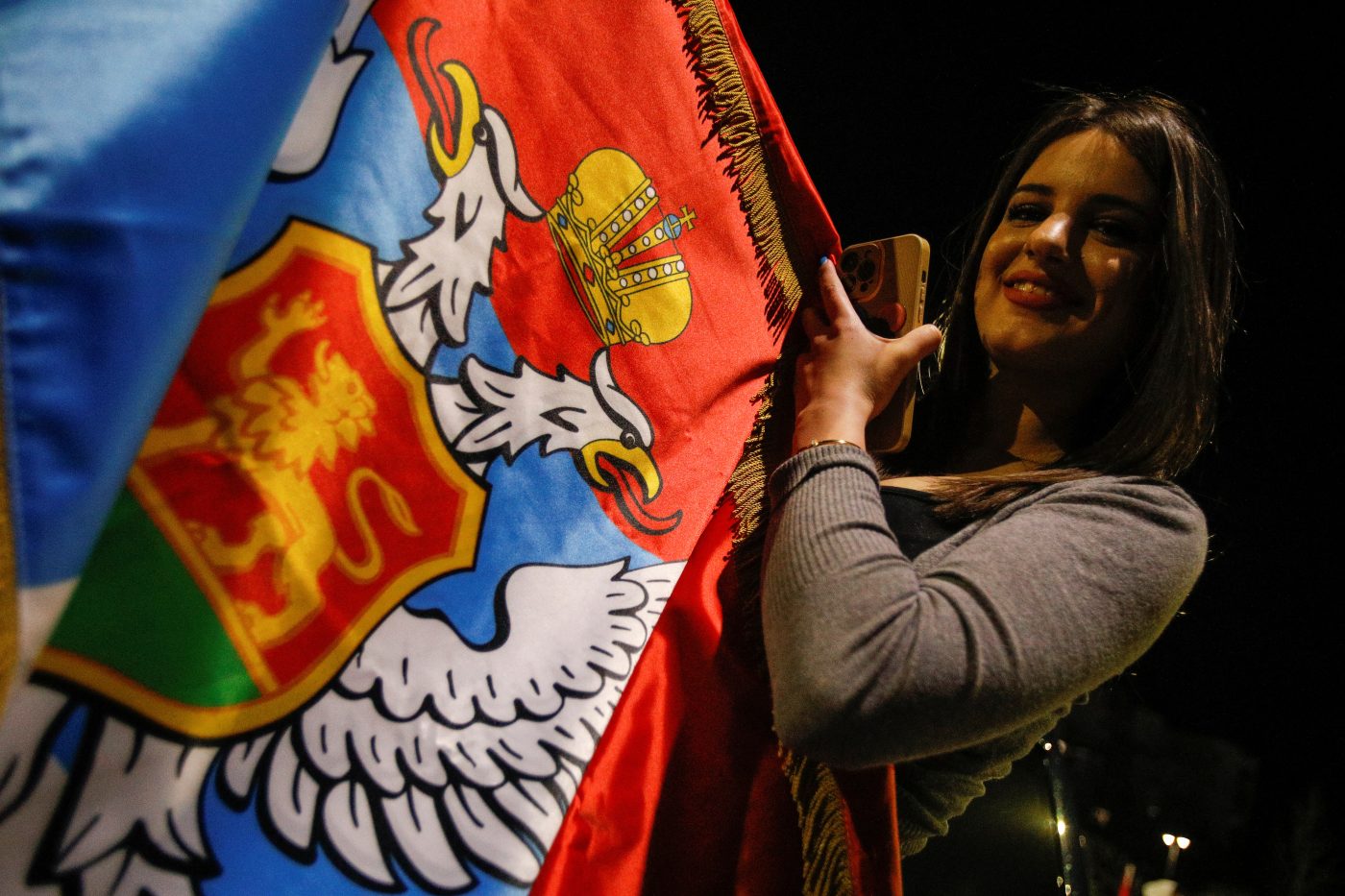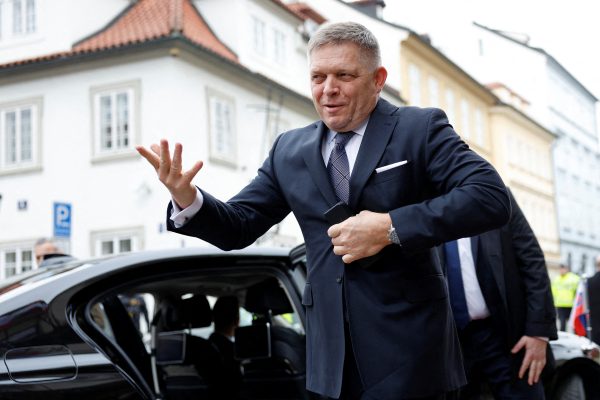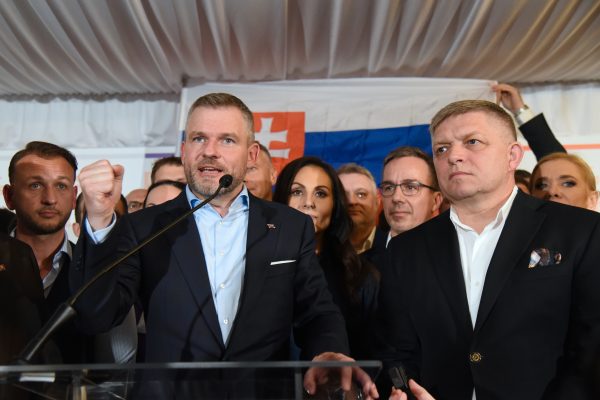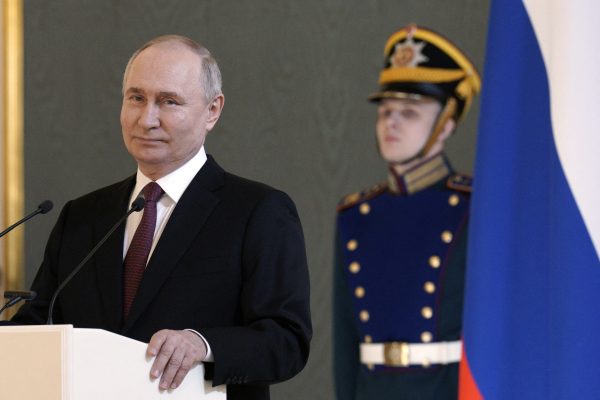After nearly 30 years in power, both as president and prime minister, Milo Djukanovic has been ousted from government in Montenegro. Djukanovic led the small Balkan nation to independence from Serbia (in 2006) and NATO membership (in 2017), but ultimately was unable to escape the constant allegations of corruption that plagued his tenure and which formed a central element of the campaign.
At first glance, his defeat in the April 2 presidential run-off to former economy minister Jakov Milatović — a relative newcomer and co-founder of the country’s pro-EU Europe Now! party — might have appeared a promising signal to those hoping for greater Montenegrin integration with the West. After all, Milatović was educated in the US, took his master’s at Oxford, and worked for the European Bank of Reconstruction and Development (EBRD.) But the sight of Serbian nationalists celebrating his victory by waving Serbian flags in the streets painted an altogether different picture of what the new era might mean.
The election of Milatović, who ran on the seemingly contradictory platform of closer relations with both the EU and Serbia, finds the country at a crossroads. It is, therefore, critical that the EU continues to engage and holds the new president to his promise that the country is firmly focused on steps to make it a full EU member within five years.
The change at the top came after months of political tension in Montenegro. In August 2022, the coalition government of former Prime Minister Dritan Abazović lost a no-confidence vote after he supported a deal with the Belgrade-based Serbian Orthodox Church allowing it to keep its monasteries, churches, and shrines, reversing legislation requiring it to hand them to the state. The country has been without a permanent premier ever since, and in March, Djukanovic suspended the legislature until early parliamentary elections could be held.
It is against this backdrop that Milatović came to power. Despite being elected on an anti-corruption, pro-EU platform, the new president was endorsed by Andrija Mandic, leader of the pro-Moscow and pro-Belgrade Democratic Front, and failed to mention his new administration’s continued dedication to NATO in his victory remarks, which has raised questions about his true commitments.
Djukanovic had emphasized this. Days before the election, he warned voters of efforts by Serbian nationalists in Montenegro to create a “Serbian world,” which “coincides with Russia’s anti-NATO policy.” He bemoaned an alleged EU “negligence” for allowing Russia to “[walk] into the empty space left by the European Union” and “[develop] its network in the Balkans.”
In recent years, Serbia has become increasingly authoritarian and has been described as, “a stalwart Russian and Chinese ally run by a semi-authoritarian government that proactively pursues ideologically irredentist territorial expansion.” Its president, Aleksandar Vučić served as a repressive minister of information to Slobodan Milošević, the accused war criminal who died in custody as he was being tried. In a region scarred by war in the 1990s — the biggest post-World War II conflict until Russia’s all-out invasion of Ukraine — all such behavior has the potential to unravel democratic and economic progress. Attached to Russia by history and instinct (two-thirds of Serbs see it as their “greatest friend”) Belgrade has also been reluctant to adopt EU sanctions against Russia. Seen in this light, a pro-Serbian leader in Montenegro would be unlikely to aid Balkan stability.
In fairness, Milatović has condemned Russian aggression against Ukraine and has made few open declarations of support for Serbia, beyond saying the relations should be as good as possible. But doing the minimum — NATO member states are supposed to condemn wars of aggression — is far from convincing in a region where a lack of clarity can cause serious questions and problems.
Milatović is committed to making the economic and anti-corruption reforms necessary to bring Montenegro into the EU by 2028. Of course, this is not entirely in his hands. If the current sense of stasis in the Western Balkans continues, the country might easily follow the Serbian and Turkish path, with anti-Western voices emphasizing a perceived lack of EU engagement as legitimate grounds for slowing cooperation with EU initiatives, including Russian sanctions.
This does not necessarily mean the EU must expedite Montenegro’s application, but it should expand its efforts to engage. This could be as simple as a visit from the EU Commissioner for Neighborhood Enlargement, who was last in Montenegro in July, or as expansive as badly needed investment in Montenegro’s healthcare system. And if Milatović does implement the anti-corruption reforms he has promised, the EU must offer assistance wherever possible and recognize his efforts.
Ultimately the EU itself can only do so much. Milatović must also decide if he is willing to truly commit to making the reforms necessary for EU entry – and the June 11 parliamentary election will determine his ability to deliver.
The president’s powers are limited by parliament, and Milatović will be dependent on the politicians he has to work with and the coalitions that are formed. Europe Now!’s clear victory in the presidential race may be a precursor to a strong electoral performance, as recent surveys suggest the party will receive win 44% of the vote, far ahead of opponents. This would strengthen his hand, and Milatović will also nominate a prime minister, though the new parliament will then have to confirm them.
The EU knows that Montenegro can move toward Brussels or Belgrade. The prospect that the country, a NATO ally who 30 other member states are legally bound to protect, could become sucked into the orbit of the “Serbian world” is too sobering to accept without at least trying to pull it free.
Ashley Morford is an intern with the Transatlantic Defense and Security team at CEPA. She is currently a student at Indiana University, where she studies International Studies, Political Science, and Russian. She is interested in issues related to open governance and security.
Flaka Ismaili is a Senior Program Officer for Business Development at the Center for European Policy Analysis (CEPA.) She has considerable experience on the legislative side of government affairs, having spent five years in the US Senate working in various roles, including legislative aide and legislative assistant.
Europe’s Edge is CEPA’s online journal covering critical topics on the foreign policy docket across Europe and North America. All opinions are those of the author and do not necessarily represent the position or views of the institutions they represent or the Center for European Policy Analysis.





